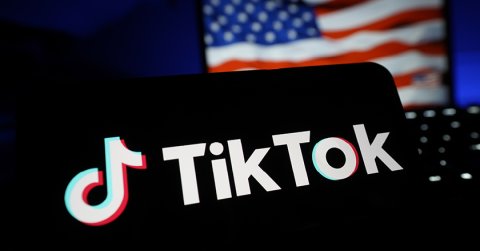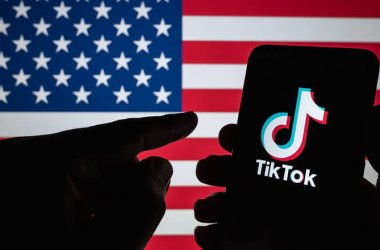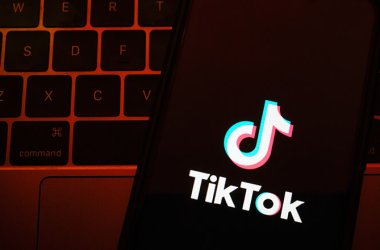
TikTok employees both former and current have raised issues over how the app’s algorithm could damage the mental health of its younger users, in a newly released internal video presented as evidence in a North Carolina lawsuit against the company.
The comments stand in contrast to repeated public statements by the company that it believes its platform is safe for young people.
North Carolina’s then-Attorney General Josh Stein sued TikTok last year, along with a group of other state attorneys general, for unfair or deceptive trade practices. They alleged that TikTok was designed to be “highly addictive to minors” and that the company has deceived parents and children about the app’s potential safety risks.
On August 19th, North Carolina Superior Court Judge Adam Conrad ruled that both the complaint and the video — which the attorney general’s office obtained during an investigation of TikTok and presented as evidence in the case — should not be sealed from public view Conrad also denied TikTok’s motion to dismiss the lawsuit.
The video, a compilation of clips from internal video meetings, suggests that some TikTok employees raised questions about the safety of the app for teens. It’s not clear when exactly the meetings in which the employee comments were made took place.
“Unfortunately, some of the stuff that people find interesting are not always the most healthy”, Nicholas Chng, who worked on risk detection at TikTok before he left last year, said in the video. “We do, in a way, encourage some of this content being put up just because of the way the platform is designed. And sometimes I worry about that”.
A TikTok spokesperson called the video “misleading” in a statement to CNN.
“The AG’s sizzle reel is a shameful attempt to distort an open internal conversation about making the platform safer when TikTok was just beginning five years ago”, the spokesperson said. “This manipulation relies on conversations taken out of context with the sole purpose of misleading the public and grandstanding”.
Elsewhere in the video, Brett Peters, who currently serves as TikTok’s global head of creator advocacy and reputation, discussed the company’s “lofty goals of getting people to be on the app longer.”
“Literally, that’s like why we’re all here is to help continue to diversify the content ecosystem, to make TikTok a place where you can get so much different types of content that you never want to leave”, Peters said.
To be sure, it’s not uncommon for tech safety teams to internally discuss how to improve their platforms. But North Carolina’s current attorney general, Jeff Jackson, said the video supports the state’s allegations that TikTok has known about and covered up safety risks.
“These videos prove what we’ve argued in court: social media companies are keeping kids hooked to maximize profits, even at the expense of their health,” Jackson said in a statement to CNN.
The TikTok spokesperson said: “Since the launch of the app, we have steadfastly created a robust trust and safety track record, with 70+ features and settings designed specifically to support the safety and well-being of teens and families on TikTok, which the AG has chosen to deliberately ignore”.
TikTok previously called the North Carolina lawsuit “inaccurate and misleading”.
The youth safety and parental control features TikTok has rolled out in recent years include adding default privacy settings and disabling late-night notifications. More recently, it introduced a “guided meditation” feature purportedly aimed at getting teens to cut back on scrolling.
The North Carolina lawsuit seeks unspecified financial penalties, as well as a court order preventing TikTok from “engaging in the unfair or deceptive acts and practices” described in the complaint.
In some cases, statements in the unsealed video align closely with allegations in the North Carolina lawsuit. For example, the complaint alleges that TikTok fails “to tell young users and parents what their executives and employees know about the harms caused by increased screen time … that it ‘interferes with essential personal responsibilities like sufficient sleep, work/school responsibilities, and connecting with loved ones’”.
The video shows Alexandra Evans, who formerly led TikTok’s safety public policy in Europe before leaving the company in 2022, saying that the app “has baked into it compulsive use”.
“I think that the reason why kids watch TikTok is that the (algorithm) is really good”, Evans said. “It’s not because we’ve tried to do anything horrible, but I think we need to be cognisant of what it might mean for other opportunities. And when I say opportunities, I literally mean sleep and eating and moving around the room and looking at somebody in the eyes”.
In another part of the unsealed video, Ashlen Sepulveda, who worked in trust and safety at TikTok before leaving the company in 2021, said, “What keeps me up at night is knowing that our algorithm pushes content to users based off of what it thinks they’re interested in,” adding that she worried especially about users searching for content related to mental health.
“For example, the more that a user looks up things about, like fitness or like diet, it turns into losing weight, and then, soon enough, the entire feed of this user is like soft disordered eating behaviour that is being discussed by their peers with no opportunity to remove themselves from that”, she said.
Peters, the current creator advocacy lead, also said in the video: “We have these expectations and goals, and they’re not necessarily congruent with good mental health”.
TikTok had sought to have the video sealed to protect the employees’ personal information. But in his order denying the motion to seal, Conrad wrote “the employees’ association with the case may entail some embarrassment, but that alone does not outweigh the public’s right of access”.
The unsealed video comes as TikTok is weeks away from facing a potential ban in the United States, after President Donald Trump again delayed enforcement of the Biden-era sale-or-ban law to September 17. Trump’s White House launched an official TikTok account this week, fuelling uncertainty about his plans for the app’s future, given that the Chinese government has offered little public indication that it would provide the needed approval for the app to be sold off by its China-based owner, ByteDance.
Source: CNN Business
Image Credit: TikTok





